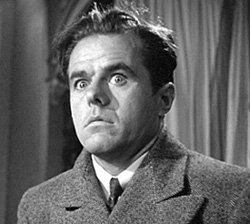There are a lot of nostalgia blinders when we talk about film. “They don’t make them like that anymore” is one that I’ve ranted about before, and I could rant about again but we’re not going there just now. Still, one that crops up every now and again is “the Production Code was really good for film when you think about it.” This comes just shy of being sensible—I do get what the person is trying to suggest, but I think it’s wrong anyway. I also think that, even if it were good for film, it was bad for society, and I’ll take the hit.
The theory, such as it is, stems from the idea that art produced under repressive conditions is innately superior because subversive. Getting around the restrictions on art forces you to be more creative if you’re still going to tell the story you want to tell. I suppose the best argument in support of this idea is the word “gunsel,” which came to mean “gangster” because Joe Breen didn’t know it meant “male prostitute.” But because he didn’t know the word, he didn’t know enough to keep it out of The Maltese Falcon and anyway it’s got the word “gun” in it, so obviously it’s a manly word!
The problem, however, is that the argument is hogwash. It really is. There are a few artists who have managed to flourish despite oppressive regimes, but there’s no reason to assume that it’s the regime that made them better. And I mean, there’s all the terrible art of Nazi Germany and Stalinist Russia. Maoist China. And while North Korean art is fascinating from a sociological standpoint, that’s not really what we’re talking about.
Further, there are some things you just can’t get around. It’s interesting to look at the subliminal queer content, but you can’t do that with everything. There is no way to have subliminal “miscegenation.” And subliminal queer content is all well and good, but it implies that queer people belong in the closet, which is not a great look. Women’s issues are severely limited by the restrictions of the Code. There’s more going on here than just the R-rated stuff.
And even there, one of the real issues with the Code was that it insisted that all movies had to be accessible to all audiences. This isn’t just “no Caligula.” (Arguably not so bad an idea as all that; I started watching Caligula once and couldn’t finish it.) This is “no Moonlight.” This is “no Rocky,” if you think about it. The ratings system is flawed, but it’s a solid improvement over “you just can’t make those movies.” There were small outlets for things like Glen or Glenda? and so forth, but for the most part, what movies were even made were extremely limited by the Code.
Yes. Artists had to be creative to sneak things in under the gimlet eye of Joe Breen. And there was some interesting creativity involved in the better writing in those years. All I can think of, though, is all those stories not told at all. Perhaps worse, movies that were chopped up on rerelease, their excised pieces destroyed and never to be seen again. I suppose some of those who lament the passage of the Code do so because they’d like to see less sex and swearing; well and good. For them, there are G-rated movies. Or PG, if they’re okay with a little bit of what the Code prevented. But the main thing the Code prevented was choice, and eliminating that is never worth it.
You can choose to help me out; consider supporting my Patreon!

